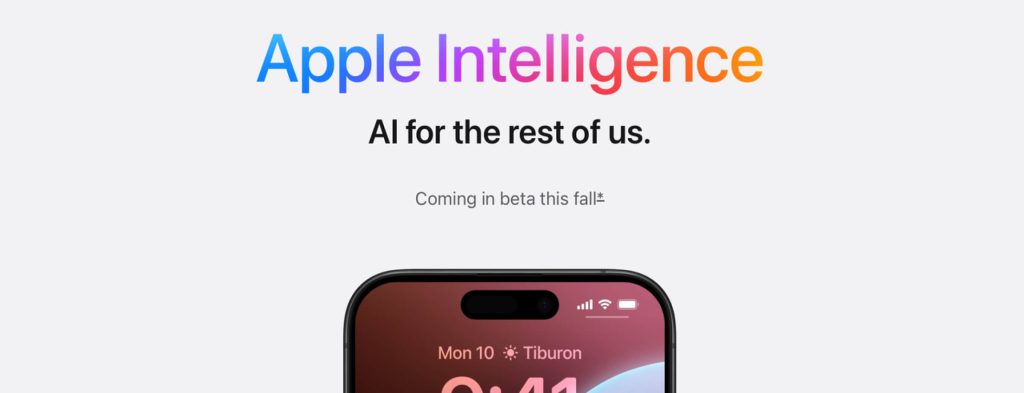Clinical trials are a crucial step in the field of drug development, increasingly clinical trials are being managed through Clinical Trial Management Systems (CTMS).
CTMS software makes managing and organizing clinical trials easier by automating many of the processes involved in the collection of trial data. In this article, we will look at the fundamentals of clinical trials, what needs to be considered when selecting CTMS applications and how we can help to improve the effectiveness of clinical trial management solutions.
What is a clinical trial?

A clinical trial is a type of research study that is conducted to evaluate the safety and efficacy of new drugs, medical equipment, or treatments. A clinical trial’s objective is to ascertain whether a new product is suitable for use in humans and safe and effective. Three phases are commonly used to perform clinical trials, with each phase serving a particular function.
Phase 1
Studies are used to ascertain whether a new product is safe to use in humans and to identify how it distributes throughout the body.
Phase 2
Phase 2 trials are used to assess the product’s efficacy,
Phase 3
Phase 3 trials are used to verify the product’s safety and efficacy and gather further data regarding its use.
Who requires a CTMS?

A clinical trial management system (CTMS) is used by any organization that carries out research for the drug and medical equipment development process, such as:
Pharmaceutical and biotechnology firms These businesses are in charge of creating and testing brand-new medications and medical equipment, and they employ CTMS to oversee all facets of the clinical trial procedure.
Clinical trials are frequently conducted by universities and other research institutes, and CTMS is used to handle the data and logistics related to these trials.
Clinical research organizations (CROs) are independent businesses with a focus on doing clinical trials for pharmaceutical and biotechnology firms. To oversee the trials they undertake, they employ CTMS.
Governmental and non-governmental regulatory organizations utilize CTMS to coordinate and keep track of the trials that are carried out under their purview.
Investigators The physicians, nurses, and other healthcare professionals who carry out clinical studies are known as investigators. To handle the patients that are registered in a trial, a CTMS may be used to monitor their progress and provide data to the sponsor of the trial.
Typical features of a clinical trial management system
The goal of Clinical Trial Management Software is to streamline the process of managing and collecting clinical trial data. It usually has a variety of functions to help various steps in the clinical trial process, such as:
Study management
CTMS enables users to design and control several clinical trial components, including study protocols, study locations, and patient recruitment.
Patient management
CTMS users can follow patients’ progress, manage visits, and manage patient data.
Document management
The CTMS gives users the ability to save, organize, and keep track of all trial-related paperwork, including research protocols, informed consent forms, and regulatory documents.
Budget management
The CTMS enables users to monitor and control the trial’s financial elements, including budgets, invoices, and payments.
Reporting
The CTMS gives users the ability to create reports on several trial-related topics, including patient enrollment, data quality, and financial status.
Regulatory
Users of CTMS can communicate with the regulatory authorities as well as other members of the study team, such as investigators and study coordinators.
Electronic Data Capture
CTMS enables users to gather, manage, and save data electronically, cutting down on errors and boosting data collecting effectiveness. Data can be manually entered by the trial participants or automatically collected by a smartphone such as location, audio, video, movement, and biometric data.
Safety management
The CTMS enables users to monitor and manage adverse events as well as other trial-related safety data.
Clinical trial management solutions offer a variety of capabilities to help manage and organize clinical trials. It may aid in enhancing the effectiveness and precision of data collecting and management, thereby accelerating the process of developing new drugs.
What are ePROs (electronic patient-reported outcomes)?
Electronic Patient-Reported Outcomes, or ePROs, are a type of technology used in clinical studies to gather patient-reported data.
Using laptops, tablets, or other electronic devices, they enable patients to self-report their symptoms, functional status, quality of life, and other outcomes.
ePROs have a number of benefits over conventional paper-based techniques of gathering patient-reported outcomes in clinical studies.
For instance:
- Better data quality: ePROs can boost data completeness and consistency, decrease data collecting errors, and enhance the accuracy of patient-reported outcomes.
- Increased patient participation: By giving patients a simple, engaging, and user-friendly means to report their outcomes, ePROs can increase patient engagement and adherence to the trial.
- Real-time data collecting is made possible by ePROs, allowing for the early detection of issues or unfavorable events and the subsequent taking of appropriate action.
- Efficiency gain: Since data can be collected and processed electronically, ePROs can improve the efficiency of data management by eliminating the need for paper-based documentation and manual data entry.
- Cost-effectiveness: Since less staff time is required for data collection, entry, and analysis, ePROs may be more economical than conventional paper-based ways of gathering patient-reported outcomes.
In conclusion, ePROs are a category of technologies that let patients use computers, cellphones, tablets, or other electronic devices to self-report their symptoms, functional status, quality of life, and other outcomes.
They can increase the speed and effectiveness of clinical studies and have a number of advantages over conventional paper-based methods of gathering patient-reported outcomes.
Clinical trial challenges
The process of conducting a clinical trial can be complicated, and organizations and participants involved in clinical trials may encounter some major obstacles.
Among the most typical difficulties are:
- Finding and enrolling the correct individuals for a clinical study is frequently a challenging and time-consuming endeavor.
- It might be difficult to maintain patients’ interest in and motivation to complete the trial once they have been enrolled.
- Managing data and paperwork: Managing the data and documentation produced by clinical trials can be a substantial problem. It might be challenging to guarantee data accuracy, completeness, and regulatory compliance.
- Budget and resource restrictions: Conducting clinical trials can be difficult for companies due to budget and resource restrictions because they can be costly and time-consuming.
- Keeping up with regulatory changes: In order to remain compliant, companies must be informed about how the regulatory landscape for clinical trials is changing.
- Managing safety: It’s critical to carefully monitor the safety of these items because clinical trials sometimes involve giving patients brand-new medications or therapies. Managing negative incidents and other safety issues can be quite difficult.
- Data analysis can be a challenging undertaking that calls for specific resources, yet it is essential for the success of clinical research.
Many of the challenges faced by organizations that run clinical trials can be resolved by the implementation of a clinical trial management system or by updating outdated systems which we will look at in the next section.
Updating Outdated clinical trial management Software
Despite the fact that clinical trial management systems have been around for a while, many businesses continue to use outdated legacy systems that no longer serve their needs.
These systems might not be equipped to handle the volume of data produced by contemporary clinical trials, integrate with modern systems, or offer the necessary level of reporting and analysis.
Organizations can get a variety of advantages from updating their outdated CTMS software, including:
Improved Data Management
The more recent CTMS software makes it possible to manage data more effectively, including better data security, real-time data analysis, and more accurate reporting.
Better Cooperation
By enabling real-time data access and sharing, modern CTMS software may facilitate collaboration between many departments, sites, and stakeholders.
Efficiency Gains
Modern clinical trial management software can automate a variety of traditionally manual operations, including data entry and tracking, which lessens staff workload and boosts productivity.
Better Reporting and Analysis
More accurate and detailed reporting and analysis are possible with modern CTMS software, enabling better decision-making and better study results.
Improved Patient Engagement
To increase patient engagement and trial adherence, contemporary CTMS software can interface with patient-facing technology like ePROs.
Regulatory compliance
Contemporary CTMS software can guarantee regulatory compliance and offer the required paperwork and reports.
Updating your clinical trial management software to fully take advantage of new technology can have enormous financial and operational benefits. Find out below what features you should consider including and how Blue Whale Apps can help you implement the update your organization needs.
Qualities to Look for in a clinical trial management system
There are a number of crucial things to take into account when choosing a Clinical Trial Management System to make sure the system suits the requirements of both your business and your clinical trial.
Some essential characteristics to look for include:
- Flexibility: The CTMS should be able to handle a variety of data types and formats and be adaptable enough for your organization and your clinical trial’s particular requirements.
- Scalability: The clinical trial management system must be able to manage the volume of data produced by your clinical trial and scale up or down as necessary.
- Data Security: To safeguard sensitive patient and trial data, the CTMS should have strong security mechanisms in place.
- Reporting and Analysis: To aid in decision-making and enhance study results, the CTMS should offer thorough and accurate reporting and analysis capabilities.
- User-Friendliness: To save staff training time and boost productivity, the CTMS should be simple to use and navigate for your personnel and trial participants.
- Integration: To simplify data collection and maintenance, the CTMS should be able to integrate with other systems and technologies, such as ePROs, Electronic Data Capture (EDC) systems, and Electronic Medical Records (EMRs).
- Regulatory Compliance: The CTMS should make sure that all regulations are followed, and it should also offer the required paperwork and reporting.
- Support and Maintenance: To guarantee that the CTMS is always current and operating without a hitch, the system should be provided with a dependable support and maintenance package.
What solutions do we provide?
Blue Whale Apps offers a wide range of software solutions, software design, and custom software development services.
Our solutions consist of:
Full-featured clinical trial management systems that simplify the administration and planning of clinical studies. They include data management and collection systems including smartphone-based biometric and participant activity sensors, to streamline auto data collection.
Data management and analysis: To gather, manage, and store data electronically, eliminate errors, and improve the effectiveness of data collection and analysis, we offer electronic data capture (EDC) systems and analytical software.
Regulatory Compliance: We offer solutions to keep businesses abreast of regulatory developments and guarantee adherence to regulatory obligations.
The trial-related adverse events and other safety data can be tracked and managed using our safety management system and much more.
Blue Whale Apps provides a comprehensive range of applications, new build apps, upgrades, and integration services. We have the experience to help you solve the most challenging and complex trial criteria. We can provide innovative solutions that will keep your trial technology ahead of the competition and reduce operational costs.
For more information and to book a free consultation please complete the contact form and one of our experts will arrange a call.






